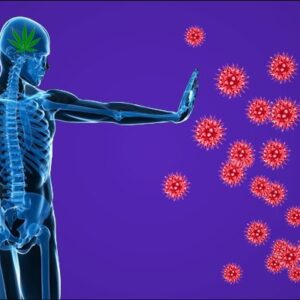Treatment of serious disorders and seasonal illnesses involves the consumption of prescribed medicines. However, it is strange to find that a drug will not work identically for all patients. No worries! Most medical professionals are well aware of such variations and will only prescribe drugs based on the patient’s general health along with other associated factors. Moreover, the doctor treating patients should also consider the relationship between Metabolism and Medicine carefully before going ahead with a specific treatment plan.
It is interesting to learn that almost 49% of Americans consume medicinal drugs regularly to improve their health. In addition, numerous citizens rely on over-the-counter medicines too. It is not unusual to find many patients being taken to the emergency room for severe drug-related complications. All of these are likely to stem from poor metabolizing factors of the patient.
Correlation between Metabolism and Medicine
Metabolism is a continuous process that takes place within your body. The biochemical procedure results in the transformation of nutrients into energy that is utilized for all bodily functions. Although each body cell is involved in this process, the metabolism of drugs usually occurs within the liver. There are a few specific enzymes that break down the complex drug molecules into smaller units to ensure effective functions as required. Other drugs may be rendered inactive and excreted out of your body.
The doctor prescribing the medicines needs to be informed about the rate of drug metabolism and its toxicity within the body. This is the reason behind the efficacy of the medicines and/or the cause of harmful side effects.
Some of the salient points that your doctor must take into account before prescribing a specific medicinal drug are:-
- The speedy metabolism of a drug will not be effective for treating the underlying problem. The doctor may decide to increase the dosage or change the drug when it fails to work for you
- An inordinately slow metabolizing drug will remain within your body for a longer period and may give rise to side effects. The concerned doctor may prescribe additional medication to counteract the side effects
The enzymes acting on the medicine for effective metabolism will qualify you as one of the following types:-
- Poor metabolizer– Low or zero enzyme activity on the drug
- Intermediate metabolizer– Reduced enzyme activity
- Extensive metabolizer– Normal enzyme activity
- Rapid or ultra-rapid metabolizer– High enzyme activity
Multiple factors have a direct bearing on the rate of medicinal drug metabolism too. The most important factors that may affect how the drug will work to treat your condition/illness include the following:-
- Genetic Factors- You may get yourself tested or your doctor may recommend the test for identification of cytochrome P450 (CYP450) gene group that is majorly involved in drug metabolism.
- Age- The working of medicines depends on the age with doctors prescribing paediatric doses for children
- Pre-existing Disorders- The rate of metabolism is altered when you already have a pre-existing kidney or liver disease and/or suffer from heart ailments
Doing a bit of research into the relationship between Metabolism and Medicine will help you to understand why some medicines do not work for you or result in severe side effects.






